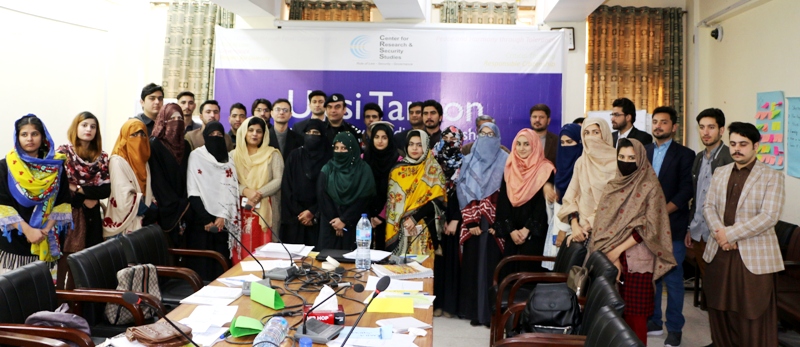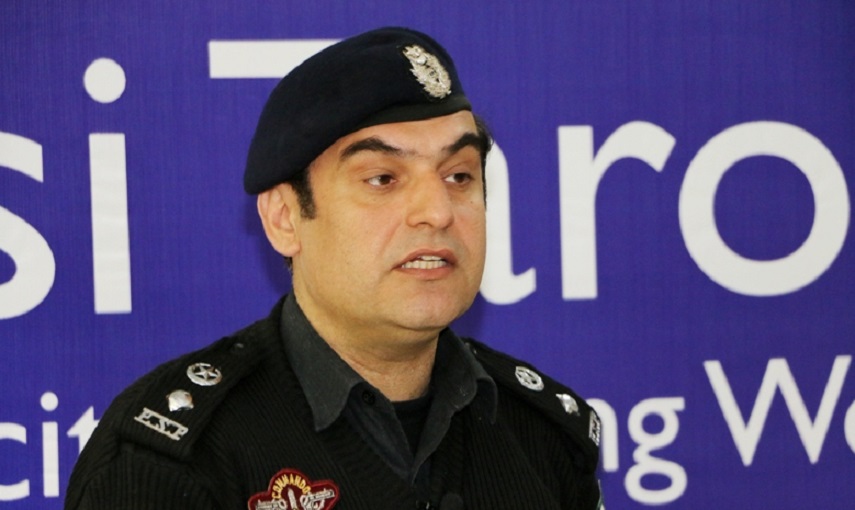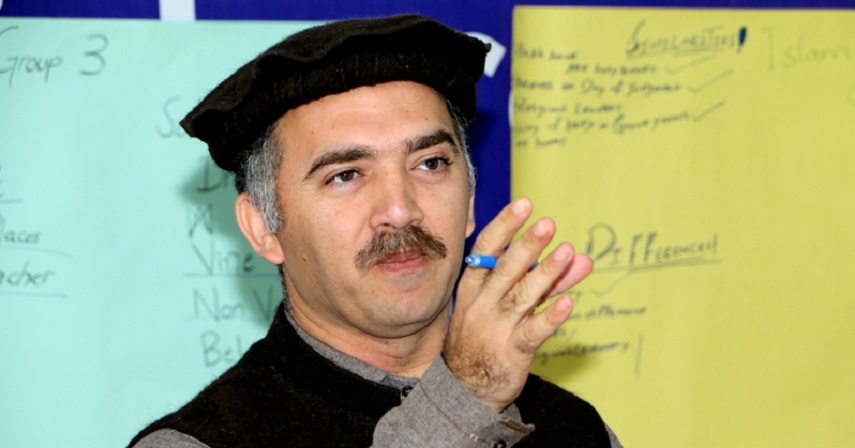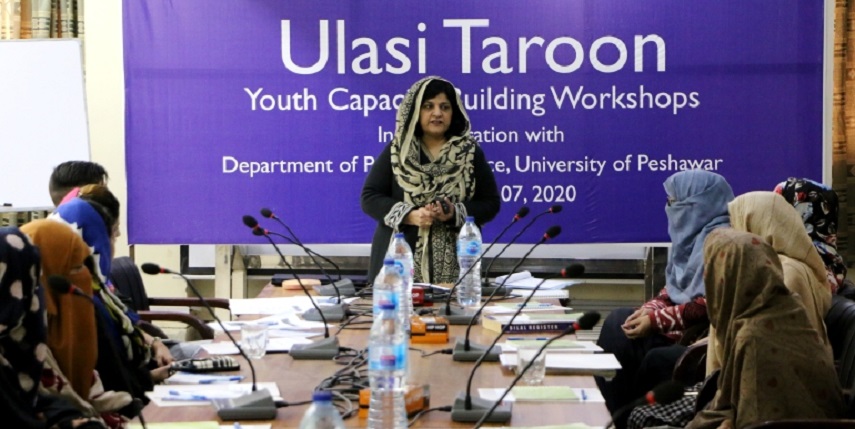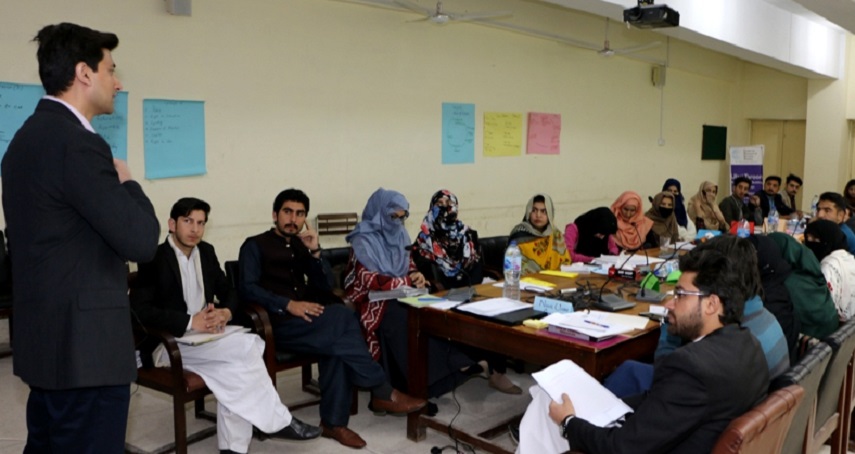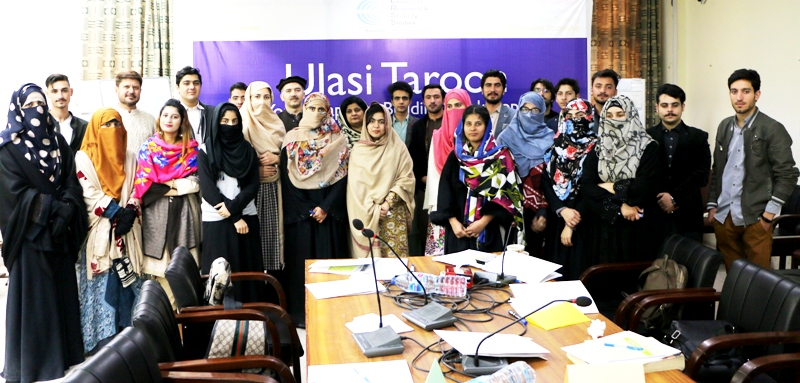Rule of law is a situation where every citizen respects and obeys the laws promulgated by the legislature. Knowledge of laws concerning one’s area of activity in the society is the fundamentally essentially prerequisite for adherence to rule of law. Rule of law is a very vast phenomenon but that doesn’t deter an individual from developing its critical understanding.
These views were expressed by Mr. Zahoor Afridi, Senior Superintendent of Police (SSP) Operations, Khyber Pakhtunkhwa Police, Peshawar, during the 27th round of Ulasi Taroon Youth Capacity Building Workshops, organized by the Center for Research and Security Studies (CRSS) at and in collaboration with the Department of Political Science, University of Peshawar.
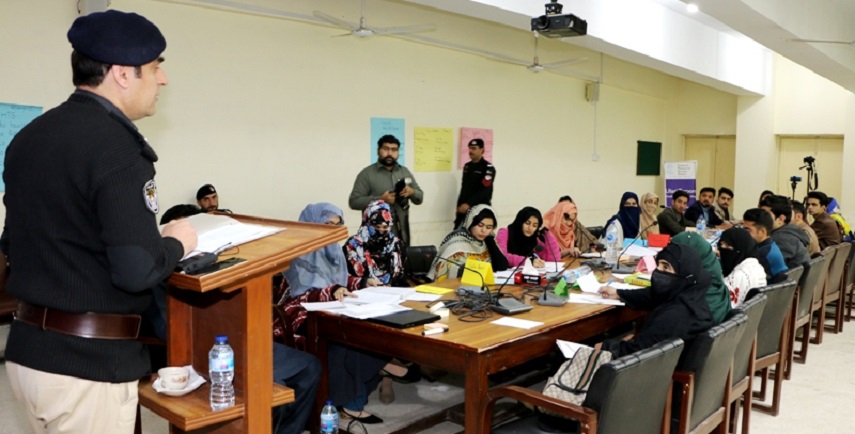 Only by knowledge and understanding of the governing laws, can rule of law be upheld. The great news for Pakistan is such a high percentage of youth in the overall population. Though it can manifest itself as a challenge in terms of the availability of employment and other opportunities of participation. However, the channelization of their potential can not only help them to thrive but also the country to prosper, and mean socio-political and economic progress and democratic development.
Only by knowledge and understanding of the governing laws, can rule of law be upheld. The great news for Pakistan is such a high percentage of youth in the overall population. Though it can manifest itself as a challenge in terms of the availability of employment and other opportunities of participation. However, the channelization of their potential can not only help them to thrive but also the country to prosper, and mean socio-political and economic progress and democratic development.
We must promote the culture of dialogue to address issues of social intolerance and extremist attitudes and practices. We need to rewire the national discourse to not only just discuss the problems but also remedies and promote critical thinking. The youth must be open to debate, difference of opinions, new ideas and cross-cultural dialogue. Only by critical, positive and outside the box thinking, can youth achieve open-mindedness. Youth must seek knowledge and it comes through reading.
Dr. Jamil Ahmad Chitrali from Institute of Peace and Conflict Studies, University of Peshawar said that the notion of equal citizenry is at the core of democracy is where every citizen is considered equal regardless of the color, cast, creed or any other differences. It calls for the availability and provision of equal fundamental human rights – vide constitution – to all the citizens, besides equal accountability before law. Education and constitutional literacy are vital for democracy. Only by equipping citizens with such intellectual tools, can they make the best choice of their elected representatives. Key to inclusive democracy is across the board accountability, and lesser the gap between idealism and realism, greater the accountability. Accountability starts from the individual level and goes up to the top.
Dr. Abdul Rauf, Chairman, Department of Political Science, University of Peshawar said that CRSS must be commended and encouraged for undertaking a youth development initiative like Ulasi Taroon. As head of the department, I assure full support to the Center for carrying out such programmes in the future. As responsible Pakistani citizens, we must be cognizant of the rich diversity of the country and thus exhibit respect for and celebrate it to strengthen social cohesion. Unity lies in diversity only when we build on the commonalities and accept the differences as a measure peaceful coexistence. We are thankful to CRSS for visiting the University of Peshawar and initiating the discussions so critical to social peace and harmony.
Ms. Shagufta Khalique, educationist, said that the universal declaration of human rights completely resonates with our core constitutional values about fundamental rights available to the citizens. Responsible citizenry demands paying respect to fundamental human rights, both in reality and as an essentiality. Pakistan has rich religious, cultural and ethnic diversity and respecting this diversity is critical to peaceful coexistence of the people from these diverse backgrounds. As a matter of social inclusion, every citizen is an important member of a society. So, we must respect people regardless of differences in terms of religion, culture, tradition, color, cast, political views etc. Learning about other faiths can help build interfaith harmony in the society. Inter-religious and intra-religious dialogue at the different forums can ameliorate the misunderstandings about other faiths. Such dialogues can use faiths as connectors in the diverse societies and build better understanding of and address misperceptions about others’ religions.
She said that prerequisites for sustainable conflict resolution are the skills of communication, listening and empathy with refined analytical skill. Youth as future leaders must equip themselves with these skills to be effective peace builders.
Mr. Malik Mustafa, Manager Programs, CRSS said that critical thinking – albeit – is a problem-solving skill but in its true application, it is much more than that. It’s not merely a criticism but a prism and a perspective to look at any situation, where you have a clear vision – critical to inform your decision – of all the potential aspects of that issue. Critical thinking is about developing your understanding and opinion on the basis of all the available information and using research based evidence to support your arguments and ideas.
Youth must comply with the core constitutional values of respect, equality, tolerance and rule of law to foster social cohesion in the society.
Ulasi Taroon is a counter radicalization initiative of CRSS that aims to address the radicalization challenges, extremist ideologies and foster social cohesion through a discourse anchored in the core constitutional values which are fundamentally essential prerequisites for social peace and harmony. The endeavor aims to cultivate and sensitize the youth – in the universities across KP – in the core values in the Pakistani constitution and our social contract. It’s an attempt to highlight the criticality of abiding by these ideals – such as adherence to rule of law, primacy and sanctity of constitution, equal citizenry, responsible citizenship, respect for fundamental human rights, tolerance for diversity and different opinions, inclusive democracy and good governance – as a measure of fostering social cohesion and peaceful co-existence.

